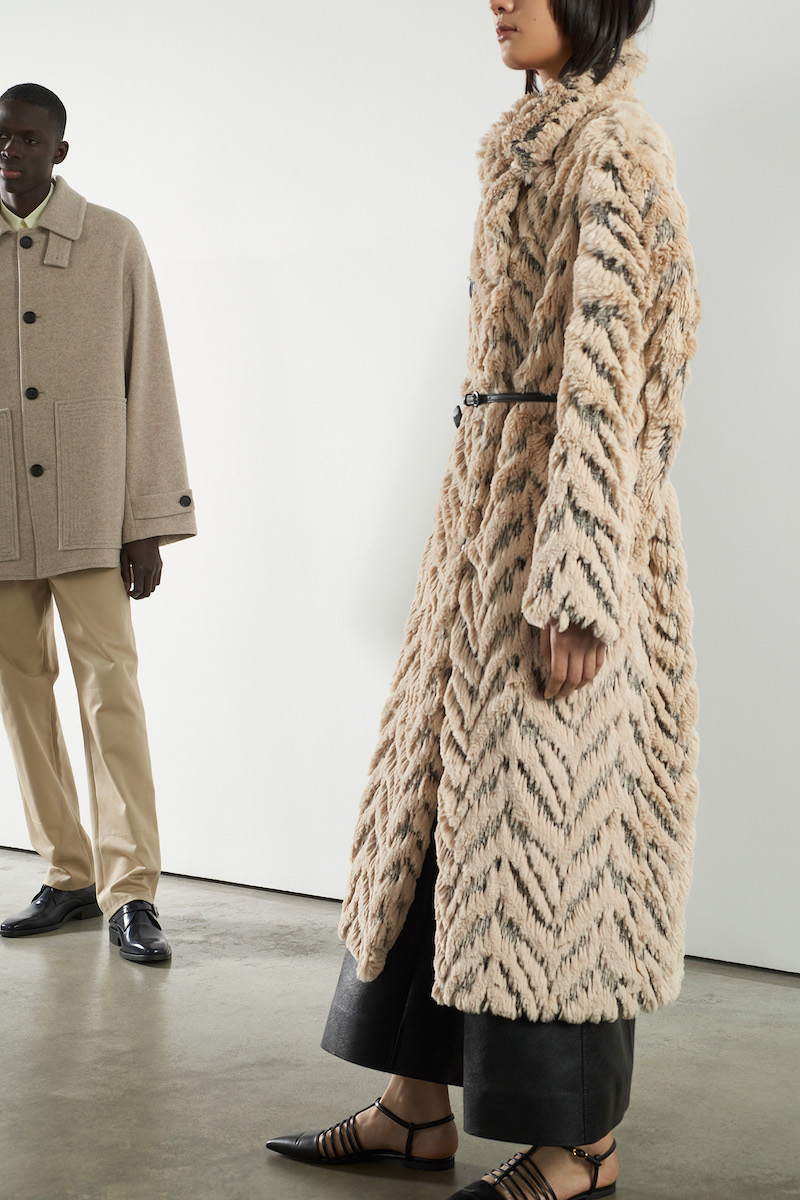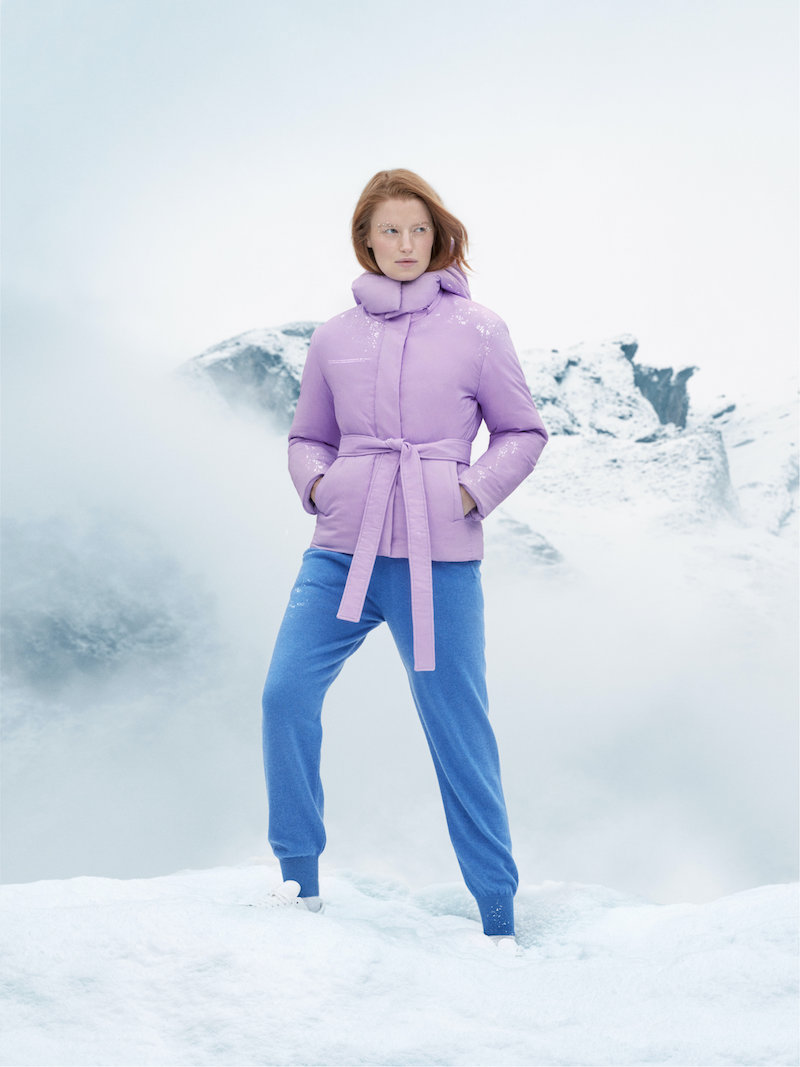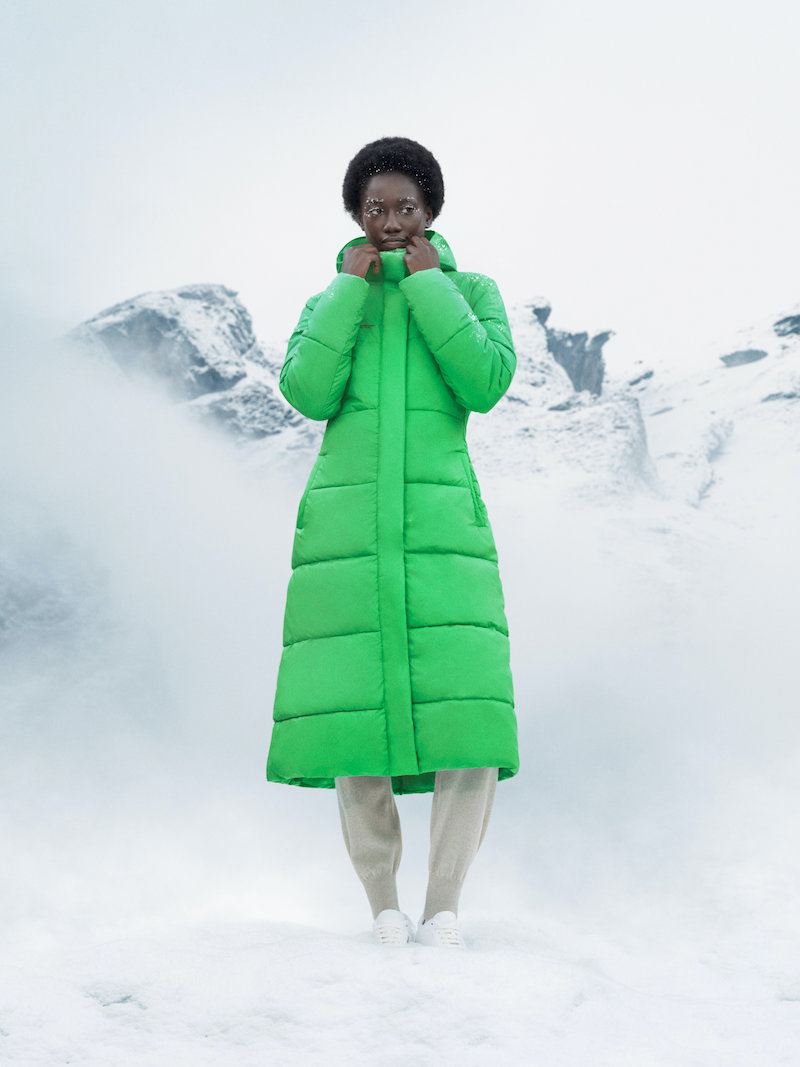Given our increasing environmental and ethical concerns, it’s no wonder that Veganuary—a challenge to go vegan for the whole of January—is becoming increasingly popular. And while much of the focus is on food, there are plenty of other ways to live free of animal products, particularly when it comes to the contents of our wardrobes.
In fact, vegan fashion is something of a growing movement. Last April, Lyst reported that searches for ‘vegan leather’ had increased 69 per cent year-on-year, while retail intelligence platform Edited suggested the pandemic could be behind an increased drive towards vegan items. (According to the World Health Organization (WHO), 60 per cent of all human pathogens and 75 per cent of new or emerging infectious diseases originate from animals.)
“More and more consumers are seeking out both ethical and sustainable fashion options—and vegan is often the benchmark for both,” Annick Ireland, CEO and founder of online boutique Immaculate Vegan, tells Vogue. “Just as we’ve seen a real revolution in how people eat over the past few years, with huge growth in the plant-based food sector, we’re now seeing the same in vegan fashion.”
For those curious about what vegan fashion actually is and how to go about buying it, here’s everything you need to know.
1. Learn about vegan and non-vegan fabrics
Put simply, a vegan wardrobe is one that doesn’t include any silk, leather, wool, cashmere, feathers or fur. If the clothes feature any kind of animal byproduct, they’re not vegan. Make sure you keep an eye out for the details and trimmings. For example, Nudie Jeans are now vegan because the back patches are no longer real leather, but that might not be the case for other brands. Look for the PETA-approved vegan logo to ensure that any products you’re buying really are animal-free.

2. Make sure ‘vegan’ means sustainable
Avoiding animal products won’t automatically make your wardrobe better for the environment, though. Many products labelled vegan are made from fossil-fuel derived synthetics, which are difficult to break down and can harm our oceans.
“A lot of consumers see it as a daunting transition, from understanding the myriad materials that exist to making sure that the vegan alternative you’re buying is also sustainable,” says Ioanna Topouzoglou, founder of London-based vegan handbag brand Mashu. “It can be a lot to digest and navigate.” She suggests turning to directories such as Good on You, CoGo, and Mochni, which include sustainable vegan listings from various brands.
Seek transparency about the manufacturing processes. After all, if you’re going vegan, you probably care about more general ethical credentials, too. “Look at the fabrics, check where they’re made and dig a little deeper to find out about their sustainable supply chains. Fortunately, many sites list this along with the product details,” says stylist Rebekah Roy, director of London’s first vegan fashion show Bare Fashion.
3. Research vegan-friendly alternative materials
A dress made out of seaweed, anyone? Becoming au fait with vegan fashion means digging into the science of textiles, from soybean cashmere to leather made from corn. Even linings such as goose or duck feathers in puffer jackets can be replaced with down made from flowers, as demonstrated recently by Pangaia.


One of the biggest challenges when shopping vegan is finding an eco-friendly alternative to leather, as much of the vegan leather currently out there is made from un-environmentally friendly virgin PVC (ie. plastic). Cult brand Nanushka is starting to use post-consumer and recycled polyester for its luxe vegan leather, but if you want to go entirely non-synthetic, there are plenty of options from the natural world as well.
“One of the great things about vegan fashion is how many amazing innovative materials there are that are not only cruelty-free but also really sustainable and often made using waste products,” Ireland says. “For example, there’s Piñatex (made from pineapple leaves) and apple leather (made from apple cores and leftover skin from apple harvests)—they provide an additional source of income for fruit farmers. There’s also cactus leather, which is high quality and uses very little water to grow.”
Oh, and if you’re looking for faux fur, which again is typically made from synthetics, check out the offerings from Maison Atia and House of Fluff, as well as Stella McCartney’s recently developed KOBA Fur-Free Fur—made from a mix of recycled polyester and plant products.

4. Try buzzy smaller brands for innovative fabrics
Shopping vegan also offers the opportunity to discover smaller labels. “It’s wonderful to have a wardrobe full of Stella McCartney,” says Roy, “but it’s so worth adding some innovative young designers to your edit. At Bare Fashion, we featured [UCA Rochester graduate] Eirinn Hayhow, who’s showing at London Fashion Week in February.”
Alongside other vegan labels such as actor Rooney Mara’s Hiraeth, look out too for buzzy brands making use of innovative vegan materials. Start with Mara Hoffman’s dreamy silk-free dresses made from TENCEL (a textile derived from wood pulp, also loved by brands including Mother of Pearl and Reformation), and others including BITE Studios, Maggie Marilyn, and Collina Strada who all offer a rose-petal alternative to silk. Try Cossac for its specifically vegan knits, composed of cotton and recycled polyester.

5. Don’t forget the accessories
Luckily, accessories provide particularly rich territory when it comes to vegan options right now. If you’re looking for bags, check out the delectable wares at JW Pei, Poppy Lissiman and Ashoka Paris. “The industry is growing exponentially, and I’m sure it will become even easier to find alternatives at more accessible prices in the coming years,” says Topouzoglou, adding that she’s found it easier to find vegan shoes in recent years.
That’s thanks to vegan sneaker brands such as Veja and YATAY, as well as Emma Watson-approved shoe brand Good Guys Don’t Wear Leather. For luxury vegan heels, try London-based Pīferi, founded by former Jimmy Choo designer Alfredo Piferi, or Los Angeles-based Taylor + Thomas, while Spanish brand Mireia Playà is the go-to for recycled vegan boots.





